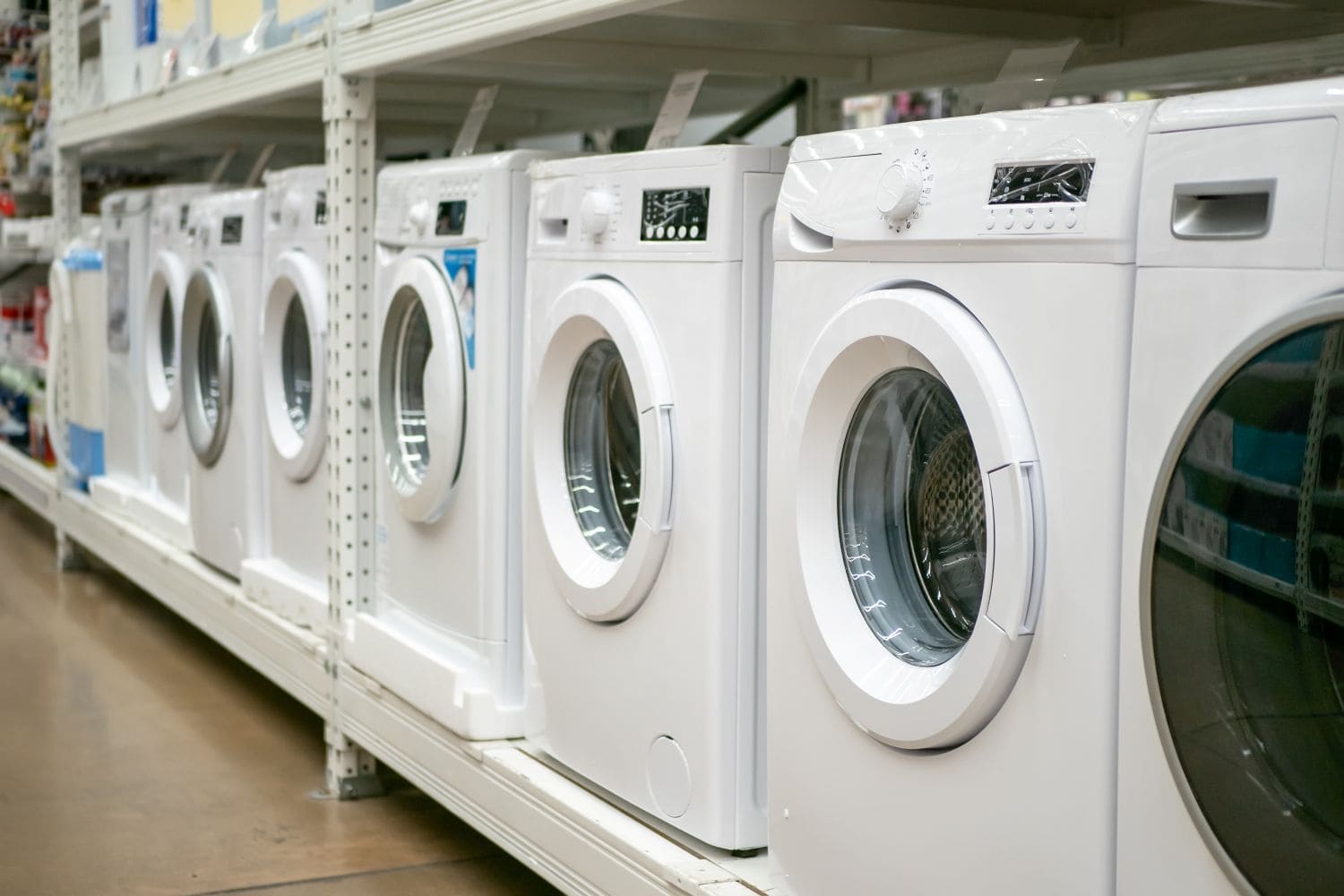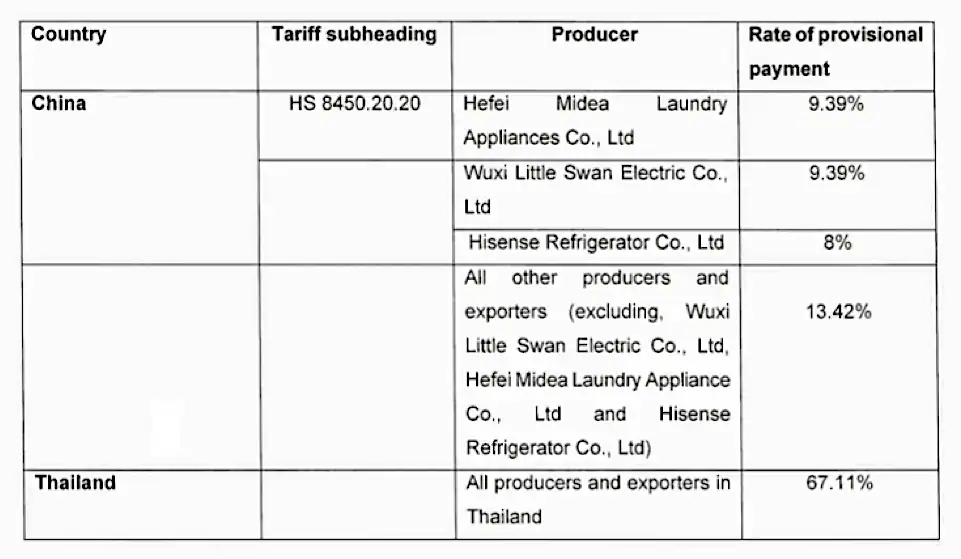Provisional anti-dumping duties in place for six months.

Top load washing machines imported from China and Thailand are the latest products to encounter anti-dumping duties from the South Africa’s International Trade Administration Commission (Itac).
The imported washing machines will carry provisional anti-dumping duties for the next six months ranging between 8% and 67%.
Itac found evidence that importers from these two countries are dumping their product in the Southern African Customs Union (Sacu) region, causing material harm through, among others, price undercutting and price suppression.
The dumping has led to a decline in sales volumes, productivity and growth for appliances giant Defy, the largest producer of the product in South Africa.
Defy’s application was submitted in July 2024, and the period in which the dumping allegedly took place was 1 April 2023 to 31 March 2024.
The investigation was initiated on 25 October 2024. Itac is allowed a maximum of 12 months from initiation date to complete an anti-dumping investigation.
ALSO READ: SAMTC ramping up the fight against tyre dumping and illicit trade
Popular but harmful
It is alleged that automatic top load machines with a capacity exceeding 10kg but less than 17kg imported from the two countries are being dumped in the region.
The machines are popular household appliances in SA.
The importers – Samsung Tevo, Livance and Hisense – were alerted to the investigation and responded to the allegations of dumping.
The commission found that there is a “causal link” between the dumped imports and the injury and threat of material harm to industry in the Sacu region.
Provisional anti-dumping duties are short-term emergency measures imposed before a final determination is made. This is done to prevent “further injury” – in this case to Defy – while the investigation continues.
The provisional duties against Chinese and Thai manufacturers will be in place for six months from 18 July.
ALSO READ: Cement industry facing improved operating environment
The provisional anti-dumping duties

According to Itac, dumped imports increased 8% in 2023 and then further to 31% in 2024.
The commission found price undercutting and price suppression during the investigation period.
It said although Defy’s sales volumes increased over the investigation period, the market share of imports increased over the same period.
“It should be noted that a single injury indicator is sufficient for the commission to make a determination on material injury and that an injury finding may be based solely on import volumes or import prices or both.”
Import domination
The commission found that although Defy’s market share increased over the investigation period, the alleged dumped imports also increased – and dominated the Sacu market.
The duties will remain in place while Itac continues its investigation until a final determination is made with recommendations to the minister of trade, industry and competition.
The washing machines are the latest in recent anti-dumping measures taken against China and Thailand.
Itac also introduced duties ranging from 9.6% for Thailand and 55% for China on structural steel products following an application from ArcelorMittal. That investigation period spanned April 2022 to March 2024, and found that imports caused material harm in the Sacu region from April 2021.
Itac has also investigated the dumping of pneumatic tyres for cars, buses and trucks from Cambodia, Thailand and Vietnam, allegedly circumventions from China.
The applicant asking Itac for relief was the South African Tyre Manufacturing Conference (SATMC), which requested duties ranging from 21% (Cambodia) to 68% (Thailand) and 84% (Vietnam).
The reason for the application was to prevent “alleged country-hopping” to evade existing duties on Chinese tyres. The alleged circumvention happened from March 2022 to May 2024.
This article was republished from Moneyweb. Read the original here.






